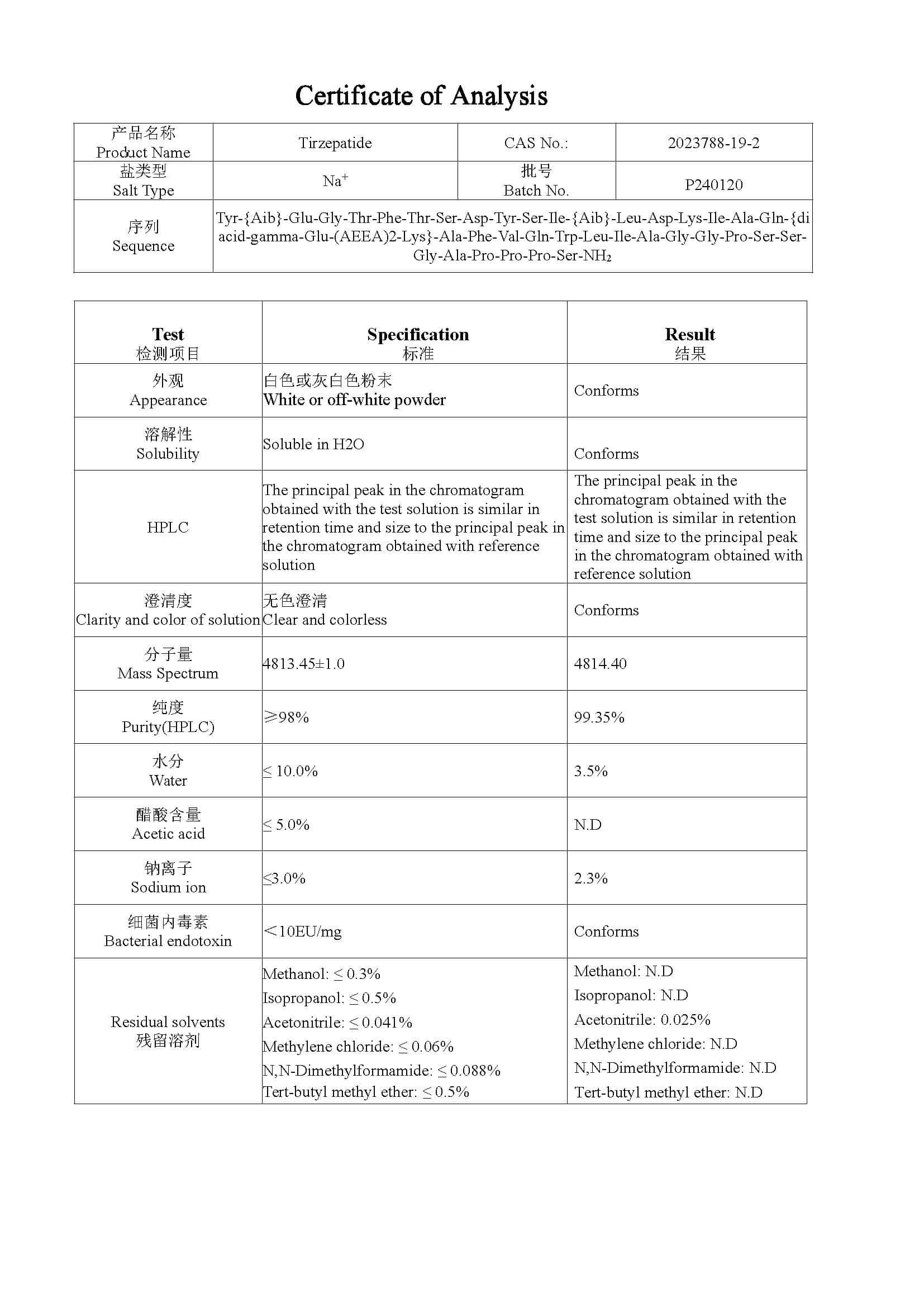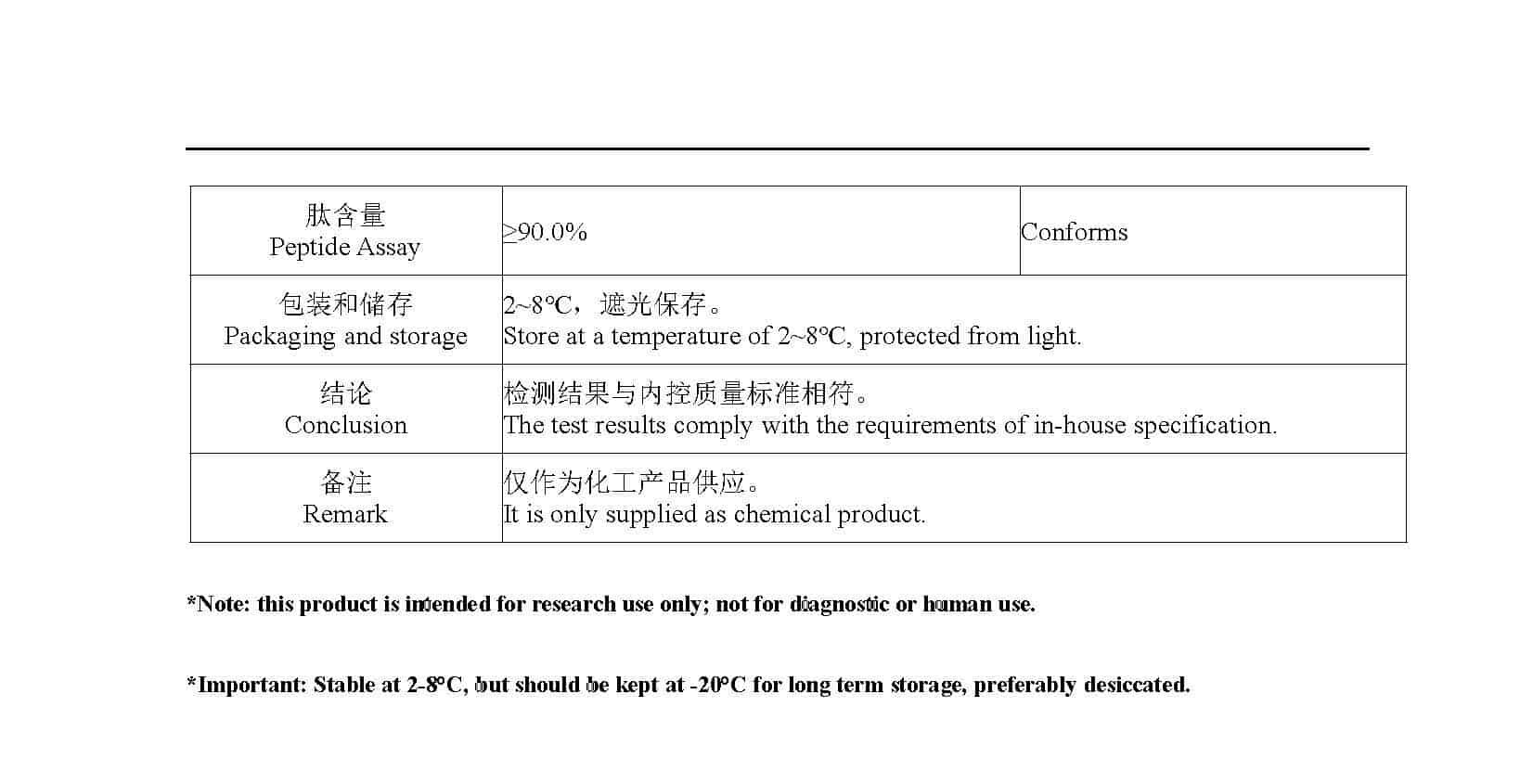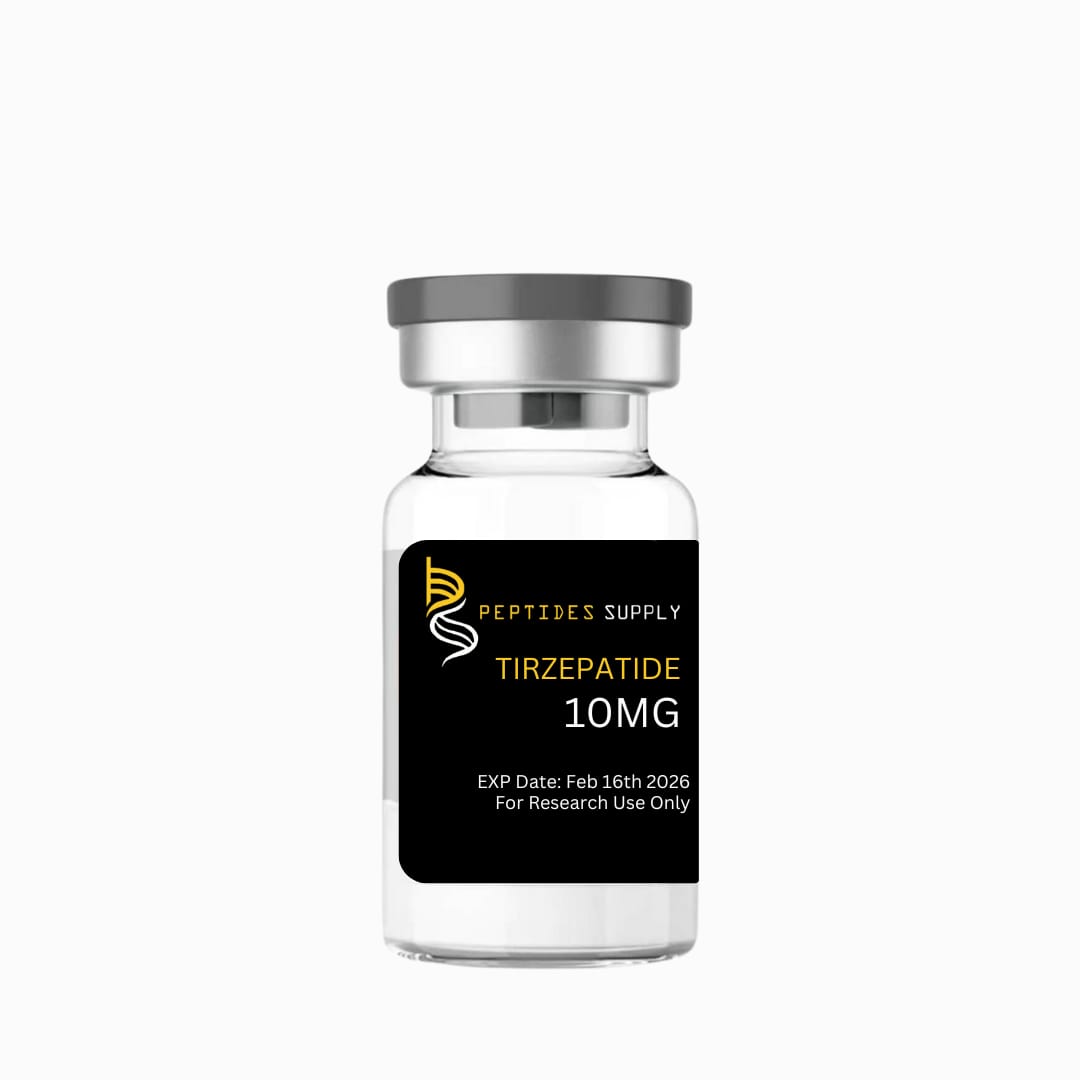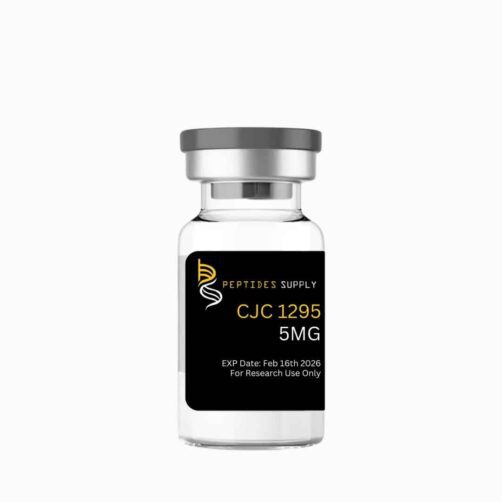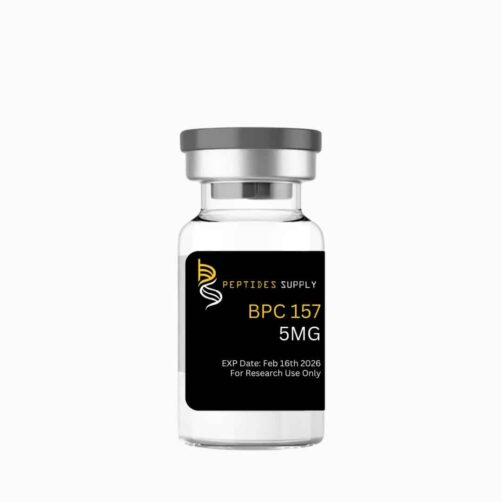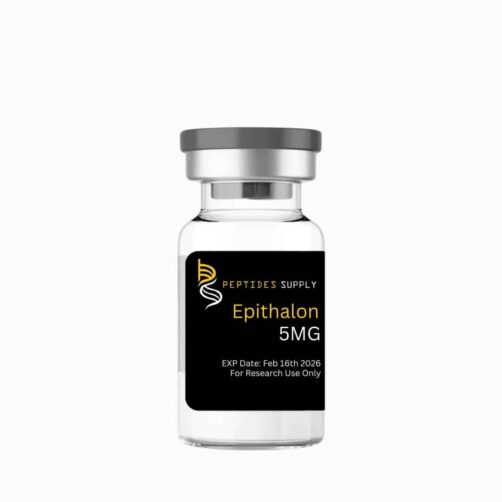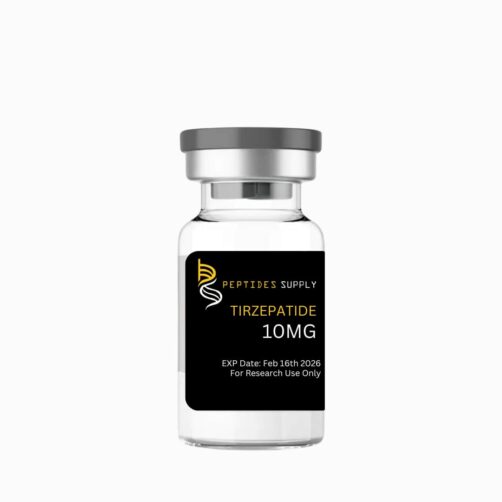Every vial is securely sealed with a safety cap; once removed, the rubber stopper beneath will be revealed. As the vial contains lyophilized powder, reconstitution is necessary prior to use. Peptides Supply also provides a range of reconstitution solutions, including Bacteriostatic Water. Please note that all products on our website are strictly for research purposes and not intended for any other use. We encourage you to review our Terms and Conditions before placing your order.
Disclaimer
Products on this site are for Research, Development use only. Products are not for human consumption of any kind. The statements made within this website have not been evaluated by the US Food and Drug Administration. The statements and the products of this company are not intended to diagnose, treat, cure or prevent any disease.
COA
